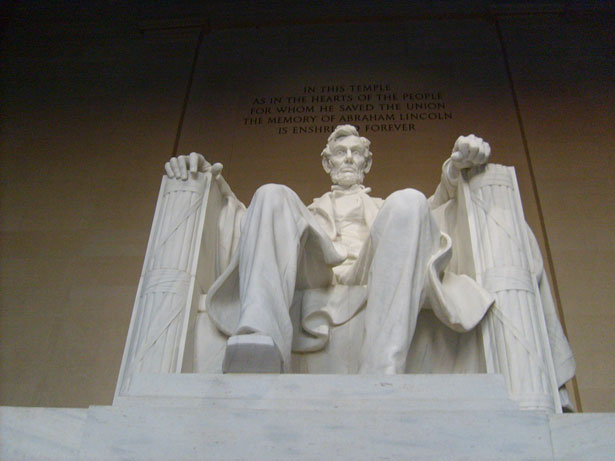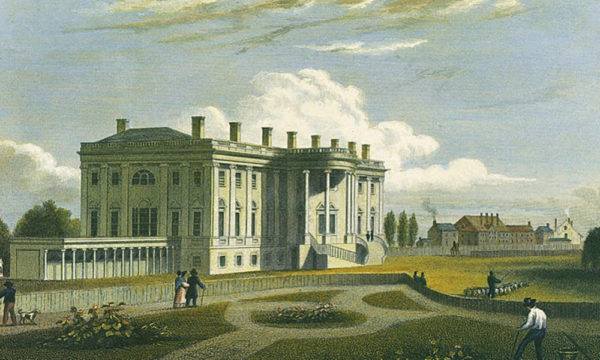“Abraham Lincoln…has almost disappeared from human knowledge. I hear of him, I read of him in eulogies and biographies, but I fail to recognize the man I knew in life.”–Union General Donn Piatt
You have to give credit to those who fought to prevent Southern Independence. Post-war, they seized the narrative, stated they were going to “reeducate” Southerners and created a “Righteous Cause Myth” that is still believed by many. Even into the mid-1900s, Southerners fought back as best they could but the “reeducation agenda” has been deeply entrenched.
Frenchman Alexis de Tocqueville understood the formation of the federal republic of these United States:
“The Union was formed by the voluntary agreement of the states; and these, in uniting together, have not forfeited their nationality, nor have they been reduced to the condition of one and the same people. If one of the states chose to withdraw its name from the contract, it would be difficult to disprove its rights to do so, and the Federal government would have no means of maintaining its claims directly, either by force or by right.” How many modern Americans are aware of this basic fact? How many talk about our “democracy” and our “nation”? Both words are conspicuously absent from the founding documents.
Many in both North and South understood the situation relative to the “political football” of the day – slavery. Massachusetts Abolitionist Lysander Spooner stated: “The pretense that the “abolition of slavery” was either a motive or justification for the war is a fraud of the same character with that of “maintaining the national honor.” …And why did these men abolish slavery? Not from any love of liberty…but only “as a war measure,” and because they wanted his assistance, and that of his friends, in carrying on the war they had undertaken for maintaining and intensifying that political, commercial, and industrial slavery, to which they have subjected the great body of the people, both black and white.”
Multiple pleas from all sides were made to compromise and avoid war—Lincoln ignored those pleas. After authorizing the invasion of sovereign States, Lincoln and his minions trashed the constitution as they suspended habeas corpus, had over 30,000 Northerners arrested for their opposition to his war, shut down and/or censored hundreds of Northern newspapers, arrested and banished Ohioan Clement Vallandigham for exercising his First Amendment Rights, blockaded ports Lincoln insisted were still part of the U.S., violated international law by stopping the British Mail Ship Trent and arresting John Slidell and James Mason, unconstitutionally created a State (West Virginia) from another State (Virginia), invaded Maryland and arrested almost 100 politicians and newspaper editors to stop a possible vote on secession, slaughtered the Plains Indians in the West to accommodate railroad interests, etc. As noted by M.E. Bradford, “Thousands of Northern boys lost their lives in order that the Republican Party might experience rejuvenation, to serve its partisan goals. And those were ‘party supremacy within a Northern dominated Union.’”
Even in the South, students have been required to study the Gettysburg Address and treat it as though it has historical validity. H.L. Mencken noted the fallacy of the address’ claim that Union soldiers died for self-determination: “It is difficult to imagine anything more untrue. The Union soldiers in that battle actually fought against self-determination; it was the Confederates who fought for the right of their people to govern themselves. What was the practical effect of the battle of Gettysburg? What else than the destruction of the old sovereignty of the States, i.e., of the people of the States? The Confederates went into battle free; they came out with their freedom subject to the supervision and veto of the rest of the country…
The so-called “second founding” born out of Lincoln’s forced union feeds into the distortion of American history. Understanding the fact that the country was created as a federal republic composed of “free, sovereign, and independent States,” contributors to the Abbeville Institute, along with many traditional conservatives, constitutionalists, and libertarians have consistently criticized the routinely promoted “proposition nation myth.”
After the Southern States were denied their independence, “deification” immediately ensued. Abraham Lincoln was elevated as the martyr to represent this new founding with its massive centralization of power, so desired by the Radical Republicans. Lincoln’s bodyguard Ward Hill Lamon observed: “The ceremony of Mr. Lincoln’s apotheosis was planned and executed by men who were unfriendly to him while he lived. The deification took place with showy magnificence; men who had exhausted the resources of their skill and ingenuity in venomous detractions of the living Lincoln were the first, after his death, to undertake the task of guarding his memory, not as a human being, but as a god.” Has any plan in history been more effective?
Originally published at the Alabama Gazette.







Good interesting article. Thank you.
On this though, regarding the deification of Lincoln: “Has any plan in history been more effective?” The answer is, Yes. The plan to keep Christian’s ignorant about knowing who their apostle is, who God’s spokesman is in this dispensation of grace, has been very effective, and for a very long time. Paul is God’s spokesman. Even the great, brilliant Pat Buchanan, unfortunately, thought and said the birthday of the Christian Church is Acts chapter 2 (Pentecost). It’s not. The dispensation of grace began in Acts 9 with the conversion of Saul. Up to that point had been God’s program with Israel and the Law. God suspended that program and began something new.
Maybe I should have phrased it –“Has any plan to deify a mortal and highly corrupt man been more effective?”
Thanks for your observation.
No, your wording was fine, Mr. Taylor. Perhaps I took your phrasing in a way I shouldn’t have, exactly. I think the way I took it, was in this way: “Is there a greater example of wool being pulled over people’s eyes, than the gross misrepresentations of Abraham Lincoln?” (Which have greatly deceived people.)
Well, along with what I already stated, I’ll say the apostle Peter, “…any plan to deify a mortal…been more effective?”. Peter, in a kind of way, is deified. For what, thousands of years now? How many think today’s “vicar of Christ” descended from Peter? If we want to talk about falsehood and lies, there’s a big, big one. Peter was not the first Pope. When Peter is resurrected, he’s going to be on a throne in Jerusalem judging his particular Jewish tribe. Peter is not going to be ruling the whole Christian world.
It’s not, “Peter has been robbed to pay Paul,” it’s Paul has been robbed to pay Peter. Yes, Mr. Taylor, Lincoln Has been deified, but many, many people have been deceived and lied to about who Peter was and what his function was and will be. A very bad deed.
I understand what Abbeville is all about, it wants to get the facts right about Southern history and the war between the States; I’m all for that. I hope though, at the same time, folks want to get the facts right about the Bible faith. And it was a former Confederate soldier who was instrumental in bringing back correct Bible truth. And by the way, Mr. Taylor, it’s been an Alabaman in particular who has greatly kept that work going.
Excellent article, Mr. Taylor.